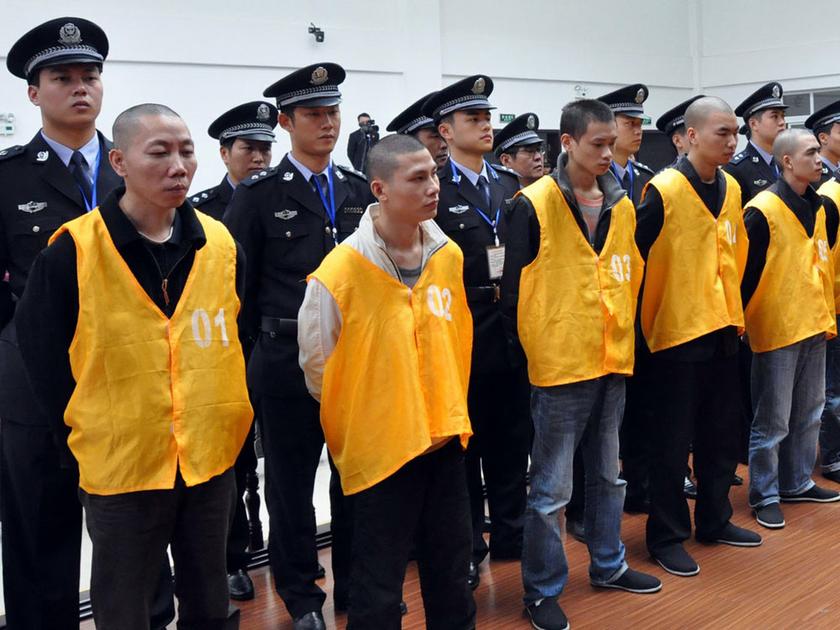BEIJING, Dec 4 — Criminal defendants in China's Henan province will no longer be forced to shave their heads, wear handcuffs or don prison uniforms for trial as standard, according to reports today.
Chinese accused, who can sometimes even appear in cages, will also be allowed to sit next to their lawyers in the courtroom as part of the proposed reforms.
The country's courts, which are part of a politically controlled judicial system, have a near-perfect conviction rate, with a recent US State Department human rights report saying 99.9 per cent of defendants are found guilty.
Legal experts quoted by state-run media said the changes were aimed at protecting defendants' rights and lessening the appearance of a presumption of guilt.
Announcing the procedural changes, Zhang Liyong, president of the Henan High People's Court, said that “the accused can't be judged guilty before he is convicted and jailed”, the Zhengzhou Evening News reported.
“Wearing criminal clothes, shaving heads and standing in a dock indicate that the defendant is guilty,” Zhang added.
However, an increase in apparently coerced televised confessions by suspects who have yet to stand trial has added to concerns that true reform of China's legal system is a long way off.
Authorities in Beijing issued a notice in 1992 explicitly forbidding courts from shaving defendants' hair or using restraints in the absence of any threat of physical violence, according to the state-run Global Times newspaper.
But the edict is routinely flaunted — both inside and outside the courtroom — although high-ranking politicians such as former Chongqing party chief Bo Xilai and ex-railways minister Liu Zhijun appeared at their trials in civilian clothes.
In one recent high-profile case, Chen Yongzhou, a journalist for a newspaper in China's Guangdong province, delivered an apology on state television wearing handcuffs and a green prison uniform and with his head shaved, one week after he was arrested for reporting on a company's alleged “financial problems”.
Sometimes only irrefutable evidence leads to defendants' acquittal, such as in the case of Henan villager Zhao Zuohai, who was jailed for murder and released a decade later once the man he had been convicted of killing was found alive.
Zhang said that the court was working together with police and prosecutors in the central Chinese province to make the changes, although no timeframe for implementation has been set, according to the Zhengzhou Evening News report. — AFP






















